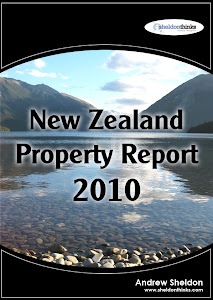These are interesting times. We are told that this is an inflationary cycle. True enough. But its not exactly clear just how significant this credit squeeze is. My personal opinion is that this is just a medium term correction, that within 18 months we are going to see a new period of credit growth. My reasons for believing this are that this 23-years growth period (1984-2007) has been too limited or regional. It was in Asia ('the tiger economies'), then it was the West, then the commodity countries. I am looking for a period when it is everywhere, when all markets are booming. I know that we will be at the top of the economic cycle when the developing countries are having property booms, when there is an excess of industrial capacity rather than a shortage. You might say that over-supplies start with shortages since they are what ignite all the new capacities. But this is what differs. This is a super-cycle where the bottlenecks run so deep that there is no chance for sufficient supply to meet demand. For this reason, I think the current credit squeeze is a period of debottlenecking. That the relaxed demand will see softer prices, particularly in assets, but it will be a period of rebalancing. Everyone is going to be relatively rich because of the huge productivity gains that are going to come from technological change.
My understanding is that this is one of those economic cycles that come around every century or so, the last being the 1880s through to the 1920s, when the world goes through a economic revolution of soughts. The Modern Era started in the Rennnaissance in the 1570s, with Leonardo Da Vinci and others. Invention of the printing press and global exploration driven by news ideas and technology. This is such a period with global inter-connectedness which will do the following:
1. Allow people in third world countries to catch up on technical skills faster than at any time in the past. Every day more & more of the information we need is on the internet and its going to grow. So how does one differentiate oneself? By having better, more useful, more insightful information.
2. The culmination of that trend is going to be global outsourcing of services. It will start with basic things like accounting, bookkeeping, technical support for call centres, but eventually it will include sales roles and project management.
3. This of course has to push a lot of productivity incentive upon the Western countries who need to stay relevant. The key is for the West to appreciate their strengths.
4. The globalisation of markets will change the way we relate. The distinctiveness between cultures will die. The market will become global. already markets are aligning. Sadly there is no competition between governments so it looks like they will align themselves in their common goal of screwing taxpayers.
The big feature of this credit expansion is that its going to move to Asia. The ASEAN region is currently creating a framework for economic integration which I believe is going to make this a region not just of savings to finance the West, but a region of conspicuous consumption. We are going to see more Indians and Chinese holidaying in the Philippines, Indonesia, whilst these countries reform to embrace the benefits of capital inflows. China and India will continue to rapidly urbanise their populations, with those new pools of labour providing part of the productivity gains, the rest coming from better organisation and technology. Organisation will mostly mean more outsourcing and specialisation.
So what are the implications for markets and commodities?
------------------------------------
Andrew Sheldon www.sheldonthinks.com
 The Australian market is looking like pretty good buying at this point, though I don't see any need to rush in. I would suspect some more weakness in commodity based stocks, but I think we will see a flow of money back into banking, insurance and retail stocks. Sure commodity prices are looking a little weaker, but as far as the economy is concerned the economy is still generating large amounts of cash, and the contribution of the farm sector will kick in. I would suggest one of the biggest factors helping to hold up the market will be the huge amounts of investment in gas, iron ore, coal, coal seam methane projects in WA, NT, NSW and Qld. All this new capacity means Australia will be well positioned for the next decade, and the investment will help lift demand in the short term. The market will likely consolidate around this level for some time.
The Australian market is looking like pretty good buying at this point, though I don't see any need to rush in. I would suspect some more weakness in commodity based stocks, but I think we will see a flow of money back into banking, insurance and retail stocks. Sure commodity prices are looking a little weaker, but as far as the economy is concerned the economy is still generating large amounts of cash, and the contribution of the farm sector will kick in. I would suggest one of the biggest factors helping to hold up the market will be the huge amounts of investment in gas, iron ore, coal, coal seam methane projects in WA, NT, NSW and Qld. All this new capacity means Australia will be well positioned for the next decade, and the investment will help lift demand in the short term. The market will likely consolidate around this level for some time.








